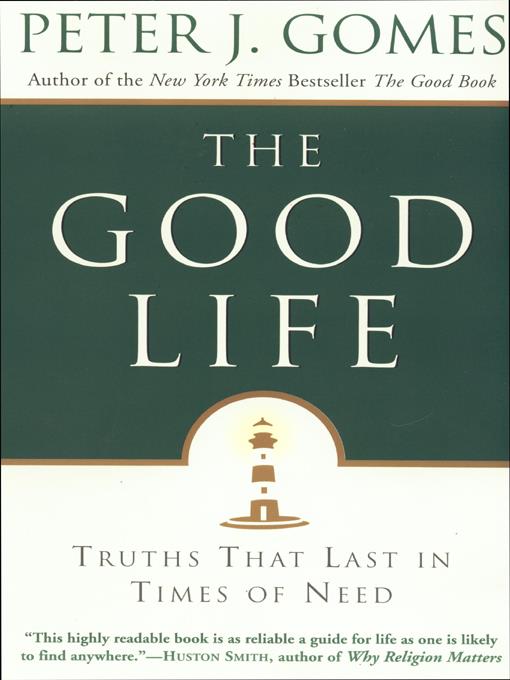
The Good Life
Truths That Last in Times of Need
کتاب های مرتبط
- اطلاعات
- نقد و بررسی
- دیدگاه کاربران
نقد و بررسی

Starred review from April 15, 2002
Gomes, Minister of Harvard's Memorial Church and author of the bestselling The Good Book, concludes this book by noting that, in it, he sounds "preachy, homiletical and even moralistic," but then acknowledges that as a professor of Christian morals, he is entitled. Indeed, this book is nothing if not homiletical, and sometimes a bit long-windedly so, but the young people to whom Gomes writes should be so lucky as to have him write a dozen more equally preachy, loquacious tomes for their edification. Gomes begins by articulating what "the good life" is, and then explores the virtues that enable one to live that life. Little of what Gomes writes is, by his own admission, particularly new. His thesis—that doing good is essential to the good life—is not radical, nor are his admonitions to pursue lives of prudence, justice, temperance, fortitude, faith, hope and love. In fact, it is the unabashedly Christian, traditional and non-radical tenor of Gomes's sermonizing that gives it weight and nobility. While he has a few strong words for anti-gay Christians (even these sentiments are tempered and thoughtful), Gomes spends most of his time praising the great explicators and exemplars of the good life, including Augustine, Thomas Aquinas, Dietrich Bonhoeffer, Mother Teresa and Desmond Tutu. His stated goal is to "pursue a middle way between the celebrations of a reactionary cultural conservatism and a self-satisfied acceptance of the inevitability of the status quo." He does this and more with equal parts grace, humility and intellectual rigor. (May)Forecast:Hailed by
Time magazine as one of the seven best preachers in America, Gomes has a strong and loyal following. Expect solid sales for this title, which will be promoted by national advertising and a 10-city author tour.

























دیدگاه کاربران